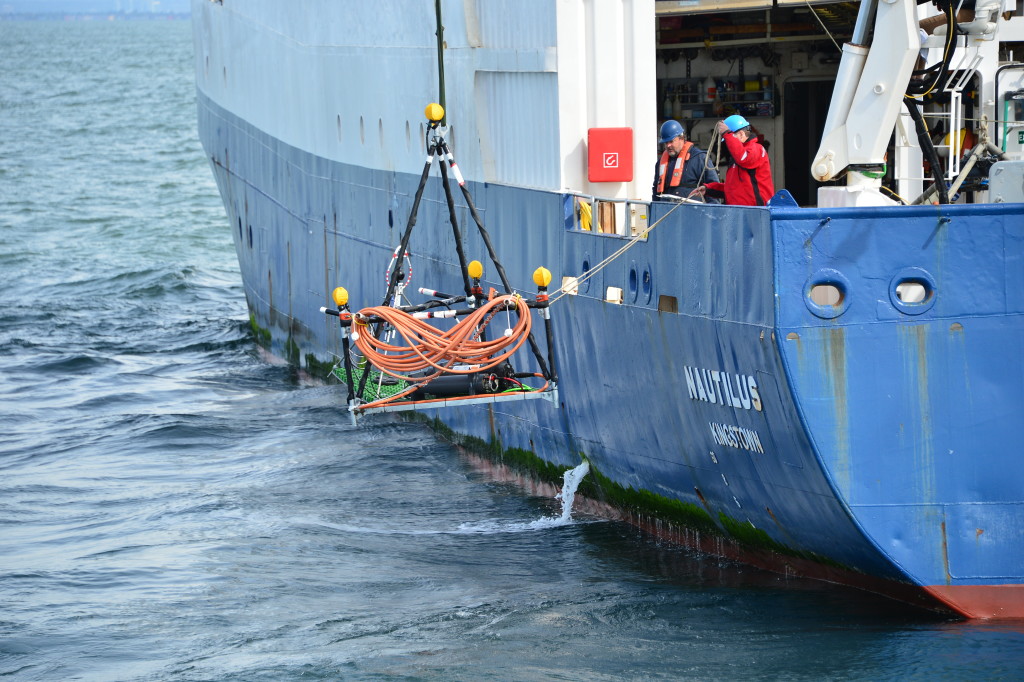
VANCOUVER – New hydrophones installed in 170 metres of water just off the mouth of British Columbia’s Fraser River are expected to help researchers understand how shipping noise affects at-risk whales, says a project spokesman.
The installation Monday was part of a program run by Port Metro Vancouver, the University of Victoria’s Ocean Networks Canada and the hydrophone’s manufacturer, JASCO Applied Sciences.
Scott McLean, director of Ocean Networks Canada’s innovations centre, said the hydrophones are next to shipping lanes and will monitor southern resident killer whales, listed as “at risk” by Fisheries and Oceans Canada.
“The array was specifically placed in the southern resident killer whale critical habitat,” he said Tuesday. “That’ll be the primary focus of the study, and we’ll be listening for vessel traffic, both the large commercial vessels and the smaller recreational vehicles, and try to understand how that impacts the mammals’ ability to speak.”
McLean said the hydrophones will capture any underwater sound: landslides, marine mammals, big boats, small boats, storms and rain.
The data collected will also help advance Canadian ocean technology, he said, noting it’s the perfect example of how researchers can help companies develop new technology.
The port said in a news release that the data will help researchers test methods of mitigating noise, like cleaning the hull of ships.
Underwater noise has been identified as a threat to orcas that make their home in the waters between Vancouver Island and the mainland.
McLean said the new Salish Sea listening station, valued at about $1 million, has two sets of four hydrophones, allowing researchers to determine the direction of sound.
The hydrophones are connected to the ocean networks VENUS ocean observatory, which is one of three it operates in British Columbia and the Arctic. A much longer observatory, called NEPTUNE, exists off the west coast of Vancouver Island, as does a station in Cambridge Bay, in the Canadian Arctic.
Duncan Wilson, the port’s vice-president of corporate social responsibility, said his organization is mandated by the Canada Marine Act to sustainably accommodate the country’s trade demands.
“We are working together with scientists, shipping industries, conservation and environmental groups, First Nations individuals and government agencies to take proactive action to improve conditions for whales,” he said in a statement.
McLean said Port Metro Vancouver’s participation is slated to last one year, and researchers hope it won’t need maintenance for another two years.